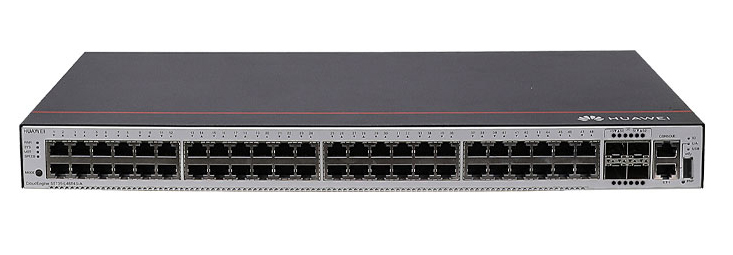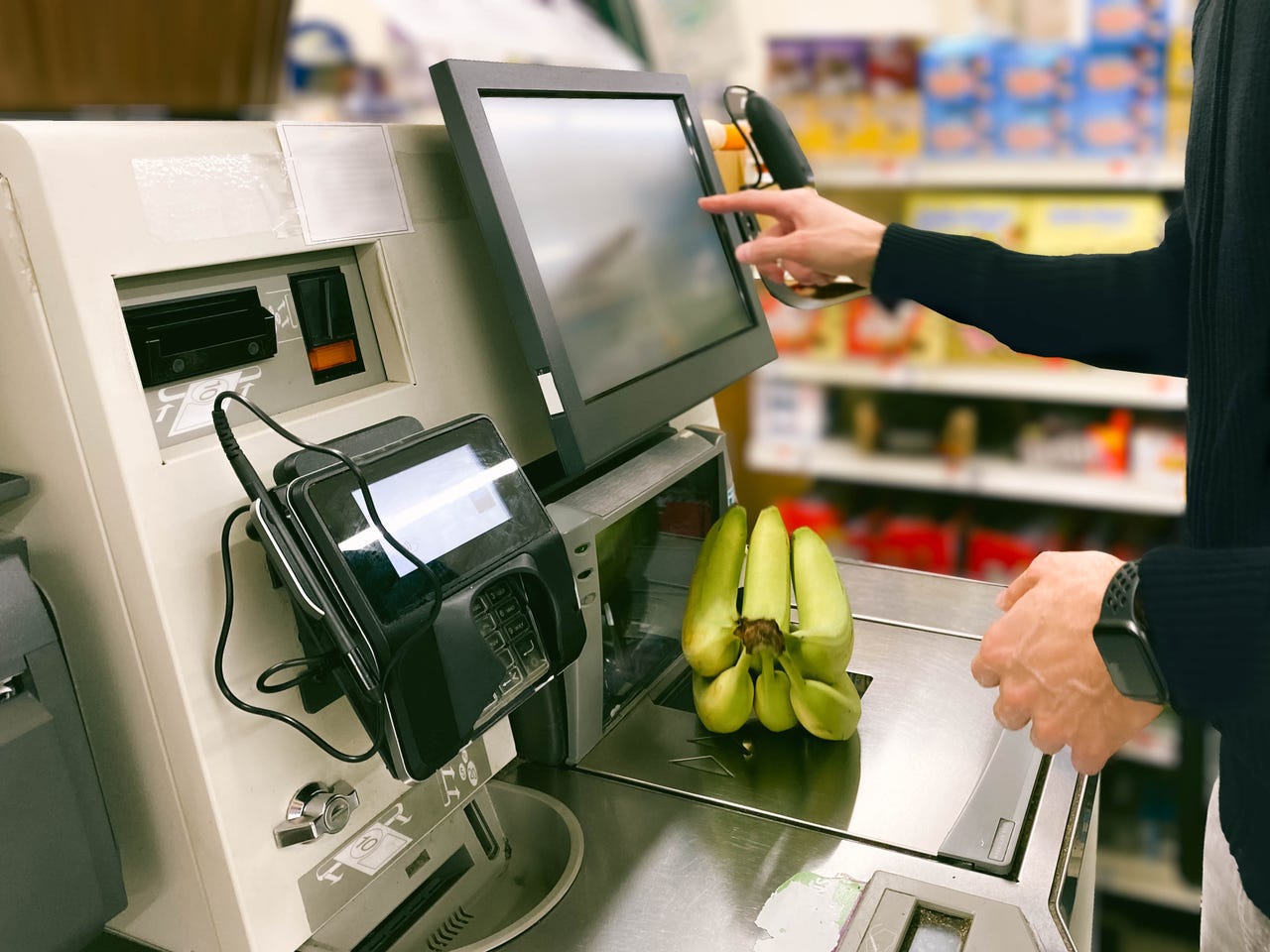
































Cashing in?
Grace Cary/Getty ImagesHow often can we do anything about things we really don't like?
Yes, we can avoid going to businesses that let us down, but technology forces us into certain behaviors and just won't let us go.
When, for example, did we ever agree that Square would keep on recognizing us until we die, as soon as we were forced to use the service just once?
This brings me to the glorious subject of self-checkout in supermarkets.
I thought it was just me, but I now realize there are many people all over the world who find it deeply offensive. Especially as the technology doesn't always seem to work so well. And even more especially as many supermarkets are stationing staff to look over your shoulder as you're doing it, like ghoulish supervisors at your first job.
Also: This supermarket doesn't trust self-checkout, so it installed this
These are feelings shared by Megan Cotter.
When she performed the self-checkout tango and then had her receipt examined by a store employee, she wasn't happy.
"I just worked for free," she told the Providence Journal.
Yes, but what can a shopper do? If you're in a hurry and the lines are long, the allure of self-checkout may be too great.
Yet Cotter decided she was fed up with this naked technological takeover. Fortunately, for her at least, she's Democratic State Representative Megan Cotter.
So she found two Republican state senators who'd support her quest. (It really does seem as if self-checkout is a splendidly bipartisan issue.)
They have created a bill that would prevent any Rhode Island store from having more than eight self-checkout lanes open at one time.
Also: The No. 1 way AI is transforming grocery shopping
That doesn't seem like much, does it? Only the very biggest stores will be affected, surely. Yet there's another provision of the bill that bathes in a certain deliciousness.
Cotter and the two other state senators want the likes of Walmart to give shoppers a 10% discount if they scan 10 or more items at self-checkout.
"Self-checkout is a way grocery stores are avoiding paying employees by getting customers to do cashiers' jobs for free. It seems only fair that if they are going to take on cashiers' work, the customer should get something in return," Cotter explained to the Journal.
One can see the intention behind this, of course. One can also see the potential for ramifications that may be a touch unedifying.
If a shopper knows they'll get a 10% discount for performing self-checkout duties, won't this transform every shopper into a self-checkout worshipper?
Americans will surely channel their finest Black Friday strength training and hurtle toward the self-service machines -- which may, in fact, cause congestion and leave the human cashiers a touch idle.
Also: Get the most out of your groceries: How to prevent food waste
Cotter believes that self-checkout also discriminates against older people who may not be so adept at using technology, so this is a deeply worthy cause.
She admits, however, that her bill may not pass as it's currently phrased.
You'll be stunned into checking yourself out for symptoms of severe trauma when I tell you that the supermarket lobbyists are already congregating to fight Cotter. They protest that "the state is going to tell you how to run your business or leave."
Isn't that what all states do to a lesser or greater extent? Yes, even Florida.
I, though, like to dream. Cotter's bill passes as is. The supermarkets' accountants and data analysts organize a cabal in a private room -- at a nightclub -- and work out that self-checkout might actually cost them money.
Then more lobbyists get involved and the brouhaha becomes more complex. They won't know whether to limit their checkout lanes and lose money or fight until the bitter end.
But then a wise accountant will muse: "Hey, we can get the self-checkout machines to automatically raise the price of things by 10% when they're scanned. I'll bet the technology is easy. I mean, who knows how much most groceries cost these days?"
And everyone will applaud.
 Tags quentes :
Inovação
Tags quentes :
Inovação